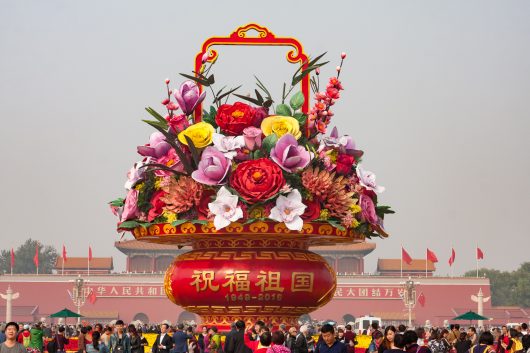10 Facts About the Taiping Rebellion

The Taiping Rebellion was a civil war fought in China between the Taiping rebels and the Qing Dynasty, beginning in 1851 and lasting until 1864. It was the second-deadliest war in human history after World War II.
Top 10 Facts about the Taiping Rebellion
- The Taiping Rebellion was led by an educated and disaffected peasant.
Hong Xiuquan, the leader of the Taiping forces, was an educated man who failed the civil service examinations, the tests required to enter government service. His failure led to emotional trauma and a bout of delirium in which he dreamt of being instructed on how to exterminate demonic spirits. Following his conversion to Christianity, he understood these dreams to be a vision from God declaring him to be a brother of Jesus Christ and proceeded to rail against the opium use prevalent during that time. These experiences became the basis for the Taiping Rebellion. - Poverty was endemic throughout China.
Conditions in the Chinese countryside opened the people to the idea of rebellion due to a lack of food, land and jobs. As Dr. Stephen R. Platt, a scholar of Chinese history writes, “[o]ut-of-work miners, poor farmers, criminal gangs and all manner of other malcontents folded into the larger army, which by 1853 numbered half a million recruits and conscripts.” The economically downtrodden peasants were further burdened by the loss of the First Opium War and the subsequent proliferation of opium dens throughout the land. - The population was booming.
One of the causes of the shortage in food was the rapidly growing population, which had grown to 430 million by 1850, a 300 percent increase from the population in 1500. - The movement had a populist message.
Some of the primary plans of the Taiping Revolution were the establishment of collective ownership of property, gender equality and an eternal reward based on Christian doctrine. The foundations of the collectivist governing structure came from The Rites of Zhou, an ancient text which prescribed rules for equitable distribution of resources to each family. - The movement was divinely-inspired.
The full name of the kingdom once it was established was Taiping Tianguo, or Heavenly Kingdom of Great Peace. Hong Xiuqiang learned Christian principles from an American missionary and the movement found a home at Thistle Mountain, where its worshippers gathered. The religion drew from Chinese Confucianism, ideas from ancient Chinese texts, and Christian beliefs to create a unique religion. - The movement was far-reaching.
The Taiping leaders’ populist message enabled them to raise a massive army of over one million soldiers. This force went forth to conquer Nanjing, which became the kingdom’s capital, in addition to about a third of the entire territory of China. - The Qing used foreign power to crush the rebels.
The Qing government could attain the support of foreign governments, Great Britain and France, to fight the rebels. Such support allowed the Qing forces to outmatch their opponents using foreign weaponry and warships. One of the reasons for foreign governments’ backing of the Qing Dynasty was to continue the open trade policies secured with China following the First Opium War. - Casualties were astronomical.
It is estimated that some 20 million people died during the war, around three million more deaths than during World War I, some 64 years later. The fighting was brutal, including “beheadings, flayings, rapes, suicides, disembowelments, mass killings, and acts of cannibalism,” according to Dwight Garner in a book review of Dr. Platt’s Autumn in the Heavenly Kingdom: China, the West, and the Epic Story of the Taiping Civil War. In many cases, the entire population of cities was massacred. - The fatal battle was in Nanjing.
Nanjing would be the site of the fatal battle of the war. Here, Hong Xiuquan would die of disease, according to his son, or suicide, according to one of his generals. The city was then breached by the Qing forces and the remaining forces either fled or were executed, with the last of the generals executed in 1868. - The Taiping Rebellion laid the groundwork for future revolutionary movements in China.
The Taiping Rebellion drained the already weakened Qing Dynasty, which would collapse less than 50 years later. The causes of the Taiping Rebellion were symptomatic of larger problems existent within China, problems such as lack of strong, central control over a large territory and poor economic prospects for a massive population. The endemic hardship of a massive population in the countryside, which enabled the rise of Hong Xiuquan, would later enable the rise of Mao Zedong and the government that evolved into the China we know today. Today, with the continued outlawing of Falun Gong practice as an insurrectionist movement, the State would appear to have learned from history to avoid letting such a movement reach levels to rival the Taiping movement.
– Lucas Woodling
Photo: Flickr
